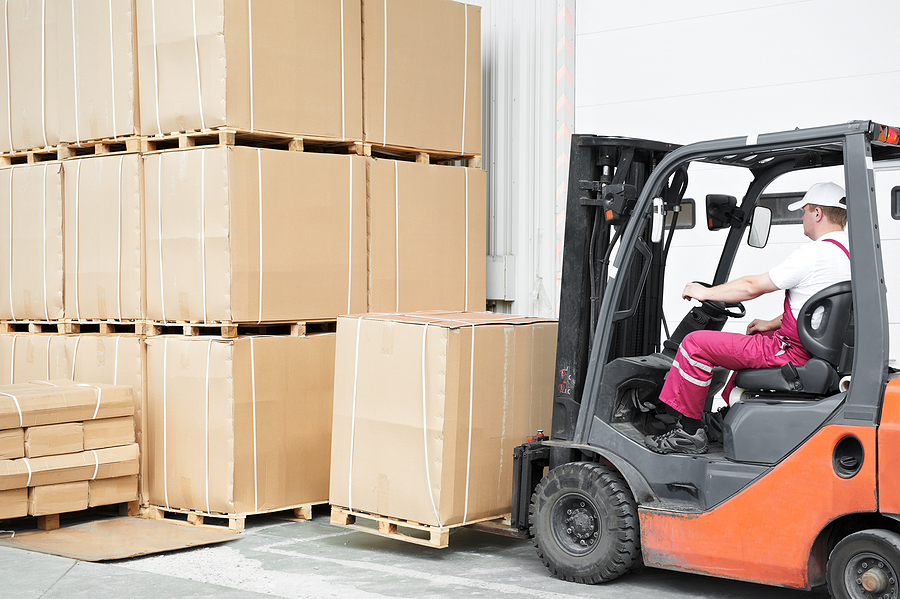Why Forklift Driving Training is Crucial for Workplace Safety

We often see forklifts constantly zipping around warehouses, construction sites, and other workplaces. They efficiently move heavy materials and lift objects high in the air. But have you ever stopped to think about how dangerous operating a forklift can be? It’s a fact that forklift driving training and certification is critical to the safety of your employees, customers and your inventory.
These are massive, powerful machines with huge loads balanced on their forks. One minor mistake by the driver can easily lead to disaster. Forklifts can topple over in an instant. Objects can slide off forks and crush someone below. Operators can get pinned against walls and shelves. The hazards are endless.
That’s why proper forklift training and certification is absolutely crucial. Without it, companies are practically begging for horrific accidents to happen. Attempting to use these complex machines without formal instruction is just asking for trouble.
Proper education gives forklift drivers the essential skills and knowledge to handle these beasts safely and confidently. There are no shortcuts – safety has to be the top priority whenever heavy machinery is involved. Lives depend on it.
Let’s take an in-depth look at why forklift training programs are so vital for any workplace relying on these vehicles.
Forklifts Easily Cause Fatalities
To illustrate just how hazardous forklifts can be, look at these chilling statistics:
- Around 100 people in the U.S. die in forklift-related accidents each year.
- Over 20,000 people are seriously injured in forklift incidents annually.
- Forklifts tipping over accounts for approximately 40% of forklift-related deaths.
- Getting struck by a load falling from a forklift causes nearly 10% of forklift accident fatalities.
Those numbers clearly show that forklift safety is no laughing matter. These powerful machines demand respect. Operating them without proper training is foolish and irresponsible.
Forklift drivers carry a huge responsibility every time they step into the operator seat. Their actions, and mistakes, can easily lead to devastating consequences. Proper education is the only way to try to prevent so many heartbreaking tragedies caused by forklift mishaps. Safety has to be the top priority anytime this heavy equipment is involved.
Forklifts Are Used in a Wide Variety of Workplaces
Now you might assume that forklifts are only found in large warehouses. But that is far from the truth. Forklifts play a crucial role and are relied on heavily across many different industries:
- Manufacturing facilities (42% of forklift-related deaths occur in manufacturing)
- Construction sites (24% of forklift fatalities happen in construction)
- Wholesale warehouses
- Transportation hubs
- Retail stores
- Mining operations
Different workplaces definitely use different types of forklifts designed for specific needs. But the core principles of safe forklift operation remain the same no matter what industry or job.
So forklift operators need versatile training they can apply to safely driving any forklift in any environment. No matter what the jobsite, properly trained drivers’ mastery over operating the equipment keeps them in control and helps prevent accidents.
Topics Covered in Quality Forklift Training Programs
Comprehensive forklift driver training covers a wide range of topics and skills. Certification courses provide both classroom education and hands-on practice. This ensures trainees thoroughly learn:
The Inner Workings and Operation of Forklifts
Those new to forklifts first get familiarized with all the various parts and how to operate them correctly:
- The function of each control and pedal
- Proper steering and maneuvering techniques
- Smooth acceleration, braking, and reversing
- Keeping loads balanced while lifting, lowering, and driving
- Special features or handling of different forklift models or brands
Gaining experience actually operating the heavy machines is critical. Hands-on practice until trainees feel fully comfortable and confident handling real-world situations is key. Proper training develops natural, practiced reactions.
How to Prevent Accidents and Injuries
Another huge section of instruction focuses on accident prevention:
- Always carrying loads as low as possible to lower center of gravity
- Adjusting lift heights correctly for raised loads
- Driving very slowly and cautiously around corners
- Immediately reporting any issues with brakes, steering, tire pressure, etc.
- Never ever jumping from a tipping forklift which greatly raises chance of death!
Learning some basic physics helps operators understand principles of balance, weight distribution, and momentum. This knowledge is essential for preventing disasters like tip-overs.
Adhering to Facility Safety Standards
Every workplace has its own safety policies and procedures that must be followed. Responsible training covers all protocols like:
- Strictly obeying load capacity limits
- Blowing horns and driving slowly in areas with low visibility
- Driving defensively around blind corners or near pedestrians
- Immediately reporting damaged or malfunctioning equipment
- And countless other safety standards
Thorough education ensures forklift operators take an active role in maintaining the warehouse’s or worksite’s safety through proper equipment operation.
Why Forklift Safety Benefits Everyone
Proper forklift training is truly a win-win situation for both employees and companies:
- Employees gain valuable skills and remain safe at work.
- Businesses reduce accidents, damages, injuries, and liability costs.
Smart organizations treat safety as an investment, not an expense. They instititute regular, quality forklift training programs. This leads to:
- Safer workplaces with skilled, responsible operators
- Reduced insurance costs and legal liabilities
- Less product loss from forklift damages
- Increased uptime and productivity
- Better employee morale and retention
In short, proper safety programs just make good business sense all around.
Finding the Right Forklift Training Program
If you’re convinced your workplace needs to prioritize forklift training, how do you find a quality program? There are several smart options:
In-House Training Programs
Some larger companies have in-house safety personnel provide training. Benefits include:
- Company trainers teach employees using your organization’s equipment and protocols
- Scheduled conveniently whenever needed at your location
- Trainees develop skills on actual forklifts they’ll use daily
In-house programs require significant resources to develop, but pay dividends long-term.
Third-Party Forklift Trainers
Many businesses bring in specialized third-party instructors. These offer:
- Objective outside perspective different from internal biases
- Broad experience training for various industries/situations
- Ability to bring training forklifts and portable course materials
Forklift Driving Schools
Attending a forklift driving school provides:
- Hands-on practice in a controlled classroom environment
- Trainees earn a certificate or license after passing skills exams
- Ideal solution for properly training new hires
No matter how it’s conducted, the focus should be gradual skill building. Rushed two-hour training leaves dangerous gaps. Taking time ensures everything sinks in.
Make Forklift Safety a Top-Down Priority
Preventing forklift mishaps requires complete buy-in from company leadership. Safety must be a core value, not just an annoying box companies have to check.
To nurture a culture of safety:
- Invest in regular, quality training programs
- Provide equipment maintenance and safety upgrades
- Replace aging forklift models with modern, better ones
- Encourage immediately reporting issues without reprisal
- Institute zero tolerance for recklessness or skipping safety steps
When upper management embraces safety first, it empowers forklift operators to make smart calls. Never let workers feel pressured to cut corners or rush unsafely.
Schedule Forklift Training Today!
Hopefully, you’re now convinced that proper forklift training is a wise investment, not a cost. It leads to:
- Confident operators focused on safety
- Far fewer costly accidents and damages
- Much higher productivity and efficiency
Don’t keep delaying. Contact qualified trainers and get forklift certification scheduled immediately. Properly educating your forklift workforce will keep your operation running smoothly for years while avoiding tragedies.
This is one area where no company can afford to cut corners or ignore safety. Comprehensive forklift driver training saves lives, assets, and budgets – it’s just that simple. Be proactive and act now before an accident happens. Investing in your people will pay back tenfold in the long run.
